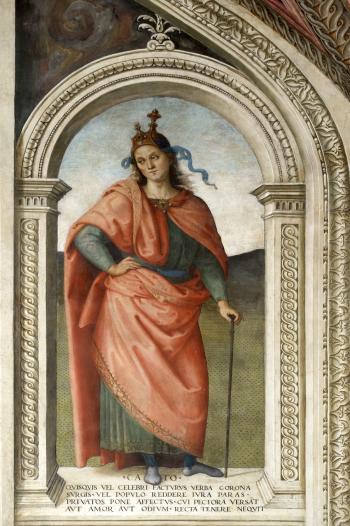Cato the Younger
Historic seat of the Guild of Merchants and Money Changers

Catone l’Uticense (Cato the Younger) is the subject of one of the frescoes at the entrance to the Hall of Audiences. Below the image is Latin inscription which reads “No matter who you are, when you rise to speak in public or deliver justice to the population, forget your own feelings: those who let feelings of love or hate trouble their souls cannot choose the path of justice.” This exhortation to practice impartiality to those who exercise official functions in the chamber is attributed to Cato the Younger.
The area behind the bar (or tribunal) was used not only by money changers but also those responsible for upholding administrative law. The words attributed to Cato were those of a man who after choosing to support Pompey at the time of the Roman republic subsequently chose to kill himself rather than submit to and seek a pardon from Caesar who had won the civil war. Some sources claim that although this same Caesar accused Cato of being a drunkard, he was in fact a historical philosopher who was widely admired for his skills as an orator and his reputation for rectitude, impartiality and incorruptibility.